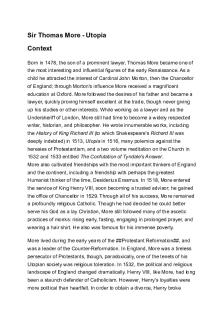Sir Surendranath Banerjee PDF

| Title | Sir Surendranath Banerjee |
|---|---|
| Author | Almighty Vegeta |
| Course | Criminal Law |
| Institution | Rajiv Gandhi National University of Law |
| Pages | 2 |
| File Size | 60.1 KB |
| File Type | |
| Total Downloads | 85 |
| Total Views | 158 |
Summary
summary of sree surendernath...
Description
Sir Surendranath Banerjea was born on Nov. 10, 1848 in Calcutta, one of the founders of modern India and a proponent of autonomy within the British Commonwealth. He was born to a Bengali brahmin family. His father was Durga Charan Banerjee, a doctor. Banerjee completed his graduation from University of Calcutta and travelled to England in 1868 to complete Indian Civil Service. He was also known as the Indian Bruke. Banerjea was born into a distinguished family of Brahmans. After graduation from college, he applied in England for admission to the Indian Civil Service, which at that time had only one Hindu. Banerjea was rejected on the grounds that he had misrepresented his age. Charging racial discrimination, he won his appeal by arguing that he calculated his age according to the Hindu custom of reckoning age from the date of conception rather than from birth. He was appointed to Sylhet (now in Bangladesh) but was dismissed in 1874, in the midst of controversy and protests, following charges of procedural irregularities. In a teaching career for the next 37 years, Banerjea founded Ripon College, later renamed for him, in Calcutta (Kolkata), and developed his ideas on nationalism. In 1876 he helped found the Indian Association to bring Hindus and Muslims together for political action. Three years later he purchased The Bengalee, a newspaper he edited for 40 years from his nationalist viewpoint. In London in 1909 Banerjea appealed to the British to modify the 1905 partition of Bengal, reinstitute habeas corpus, and grant India a constitution on the Canadian model. He believed firmly in representative government and constitutional progress by constitutional means. He advised Indians to “agitate, agitate, agitate—you have yet to learn the great art of grumbling,” but he opposed the extreme methods advocated by the political leader B.G. Tilak and some of the non-cooperation tactics that were practiced by Mahatma Gandhi. Elected in 1913 to both the Bengal and imperial legislative councils, Banerjea welcomed the principles of the Montagu-Chelmsford report of 1918, which recognized self-government as the goal of British policy in India. In 1921 he was knighted and accepted office as minister of local self-government in Bengal. Attacked by extreme nationalists as a turncoat, he was defeated in the 1924 dyarchy elections by a Swaraj (independence) candidate, whereupon he retired to write his autobiography, A Nation in Making (1925). Surendranath Banerjee was one of the earliest Indian political leaders during the British Raj. He founded the Indian National Association, one of the earliest Indian political organisations, and later became a senior leader of the Indian National Congress. Banerjee was born on November 10, 1848, and died on August 6, 1925. He was the second Indian to qualify the Indian Civil Service examinations, and
was appointed to a post in Sylhet in his homeland; however, in 1874 he was dismissed for a minor and apparently inadvertent procedural error. His efforts at reinstatement failed, and as a dismissed civil servant he was also refused admission to the bar. Banerjee felt he had been discriminated against because he was Indian. Banerjee belieaved in moderate means of political agitation, meetings, petitions, and legislative action. A social and religious reformer, Banerjee advocated widow remarriage and raising the marriageable age of girls. His command over the English language and his skills as an orator and debater made him an outstanding public speaker and a master parliamentarian. Banerjee was knighted by the British in 1921. Surendranath Banerjee's moderate perspective caused him to lose popularity, and he was defeated at the polls in 1923. Surendranath Banerjee was born in Calcutta to a Bengali brahmin family. His father was Durga Charan Banerjee, a doctor. Banerjee completed his graduation from University of Calcutta and travelled to England in 1868 to complete Indian Civil Service. He was also known as the Indian Bruke....
Similar Free PDFs

Sir Surendranath Banerjee
- 2 Pages

Nhsn-sir-guide - sir
- 44 Pages

BIOGRAFI SIR ISAAC NEWTON
- 8 Pages

Kalyan SIR Planning Commission
- 4 Pages

Sir Rajender PPT
- 156 Pages

Bharat sir launfal seminar
- 3 Pages

Sir Patrick Spens
- 2 Pages

Utopia Sir Thomas More
- 9 Pages

SIR Thomas Wyatt
- 2 Pages

SIR KATİBİ ALİNA AZİM
- 730 Pages

50353612 - Sir Ali
- 3 Pages

Lanval and Sir Launfal Lecture
- 6 Pages
Popular Institutions
- Tinajero National High School - Annex
- Politeknik Caltex Riau
- Yokohama City University
- SGT University
- University of Al-Qadisiyah
- Divine Word College of Vigan
- Techniek College Rotterdam
- Universidade de Santiago
- Universiti Teknologi MARA Cawangan Johor Kampus Pasir Gudang
- Poltekkes Kemenkes Yogyakarta
- Baguio City National High School
- Colegio san marcos
- preparatoria uno
- Centro de Bachillerato Tecnológico Industrial y de Servicios No. 107
- Dalian Maritime University
- Quang Trung Secondary School
- Colegio Tecnológico en Informática
- Corporación Regional de Educación Superior
- Grupo CEDVA
- Dar Al Uloom University
- Centro de Estudios Preuniversitarios de la Universidad Nacional de Ingeniería
- 上智大学
- Aakash International School, Nuna Majara
- San Felipe Neri Catholic School
- Kang Chiao International School - New Taipei City
- Misamis Occidental National High School
- Institución Educativa Escuela Normal Juan Ladrilleros
- Kolehiyo ng Pantukan
- Batanes State College
- Instituto Continental
- Sekolah Menengah Kejuruan Kesehatan Kaltara (Tarakan)
- Colegio de La Inmaculada Concepcion - Cebu



